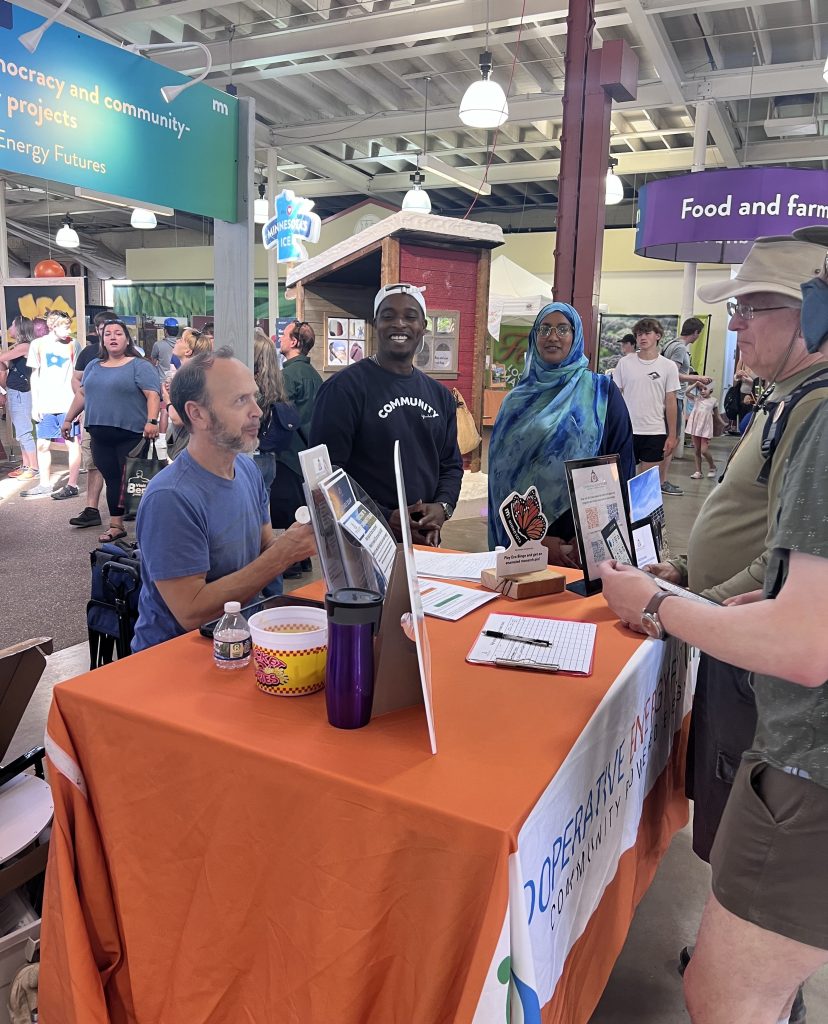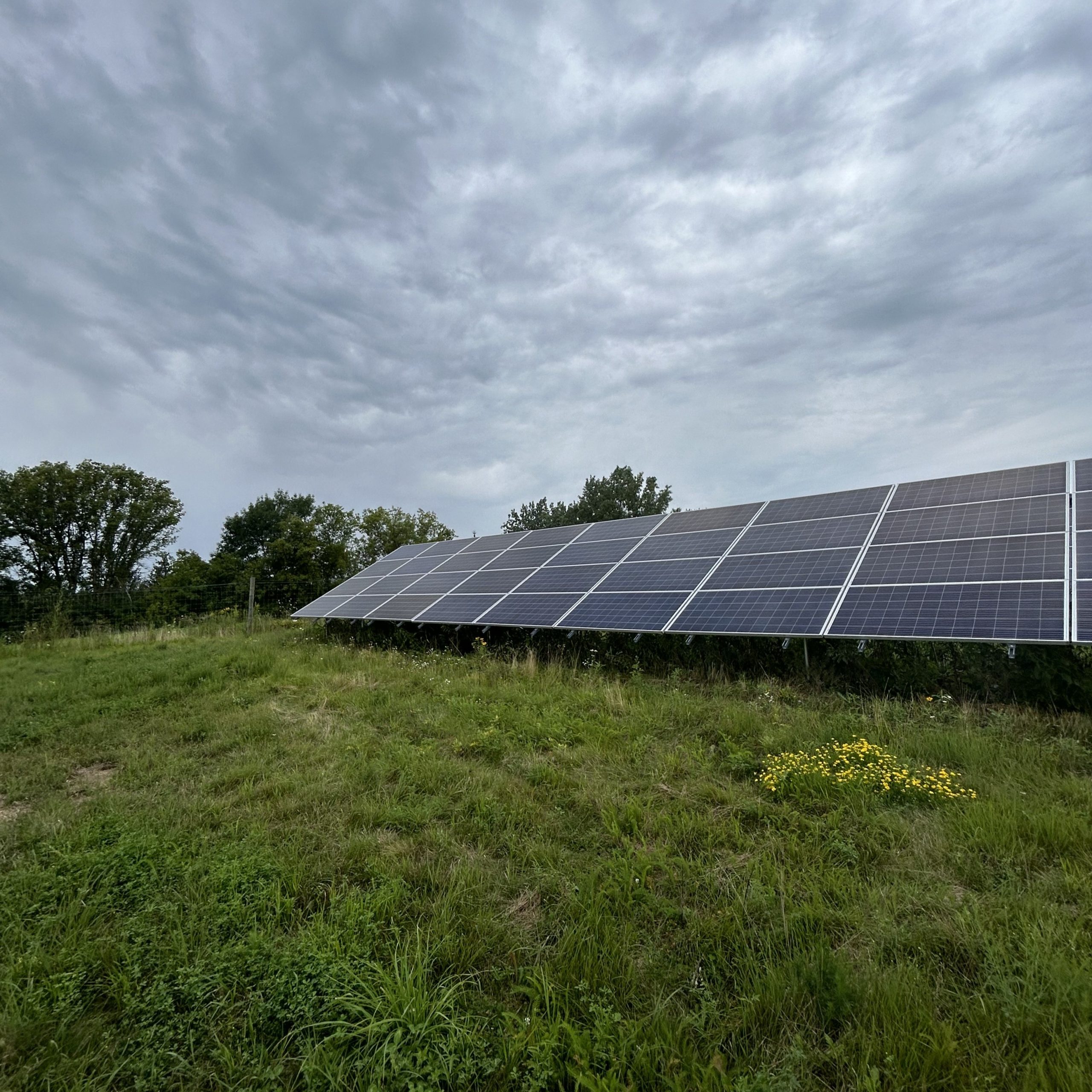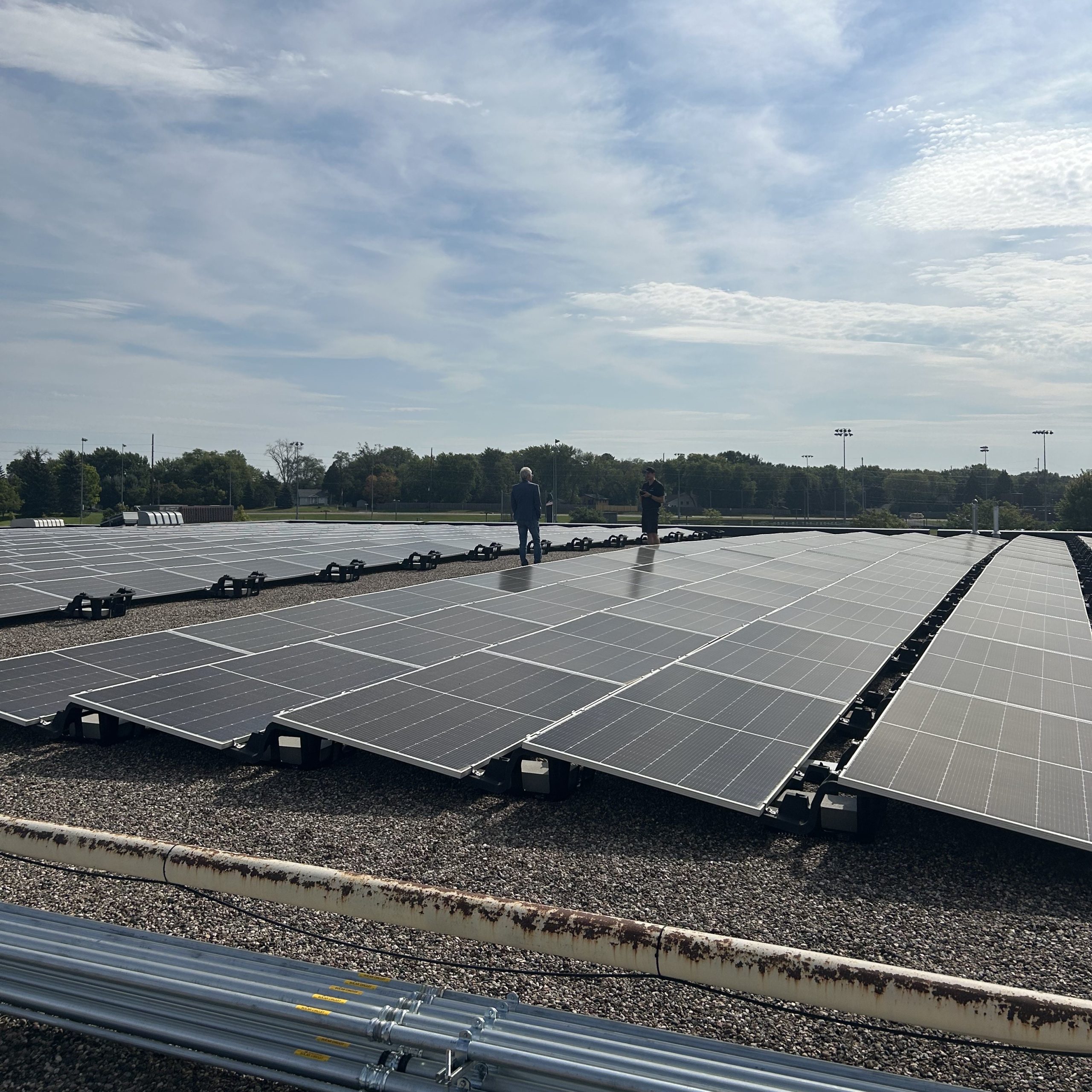Pioneering Community-Based Solar Solutions for a Sustainable Future
For Cooperative Energy Futures (CEF), the mission to bring clean energy to communities is more than just a goal—it’s a movement. Founded with a vision to empower individuals and ensure equitable access to renewable energy, CEF has grown into a dynamic cooperative that challenges the traditional energy model dominated by large utility companies. At the heart of this effort is a commitment to social and economic justice, making sure that underserved communities are not left behind in the transition to clean energy.
Today, CEF operates eight community solar gardens and a portfolio of residential projects under our Affordable Solar Program, with more projects on the horizon including the upcoming Sustainable Homes initiative. Their work is not only about providing renewable energy but also about fostering community involvement and advocating for policies that support a more just and sustainable future.
We recently had the opportunity to sit down with Allye Doyle, Director of Communications for CEF, to learn more about the cooperative’s inspiring journey, the challenges they face in democratizing energy, and how their collaboration with Avisen Legal has helped them navigate Minnesota’s changing solar policies.
 Can you share more about the origin of Cooperative Energy Futures and what inspired its mission?
Can you share more about the origin of Cooperative Energy Futures and what inspired its mission?
Our general manager, Timothy Denherder, started Cooperative Energy Futures while he was in college. It began as a small co-op, and at that time, he was already deeply involved in climate work at Macalester College. He felt strongly that people should have control over their own energy. He was witnessing the negative impacts of utility companies, and instead of just fighting against those issues, he wanted to offer a solution. People were asking, “Well, what do we do?” and he wanted to answer that.
Timothy is the smartest person I know. The cooperative model might seem straightforward, but when you get into the details of how our co-op functions, how we maintain steady income, and how we’re building new programs, it’s truly mind-blowing. We’ve tripled our staff size in the last six to seven months, which is incredible. What started as a dream Timothy had in college is now really coming to fruition.
We currently have eight community solar gardens, our Affordable Solar program launched last year, and we’re about to start a Sustainable Homes program, which we hope will be up and running by January. All of this began with Timothy’s vision to answer questions and make the world a better place.
One of the challenges I face in marketing is convincing people that what we offer isn’t too good to be true. Somehow, Timothy created an organization where you don’t have to pay any money to participate—just a $25 lifetime membership fee, and even that can be waived if someone has difficulty paying it.
Timothy doesn’t do this for any hidden agenda or personal gain. He’s not secretly making millions; he’s just doing it because he wants to help others. That’s the mark he’s chosen to make on the world, and it’s truly incredible.
How does Cooperative Energy Futures define “energy democracy,” and why is it important for the communities you serve?
Energy democracy, for us, stands for our mission to ensure equitable access to clean energy for everyone. As a cooperative, we are dedicated to giving power back to the people by democratizing the energy sector. This means ensuring that the control and benefits of renewable energy production are shared equitably among our members, rather than being concentrated in the hands of a few large corporations.
At its core, energy democracy within our organization means giving everyone the opportunity to have control—control over their own energy and control in general. This is significant because many people don’t even realize they lack control over their energy choices. Big utility companies often dominate without much transparency, and people just pay their bills because it’s the easier option, even if it’s costly and harmful to the climate. Cooperative Energy Futures offers an alternative, empowering individuals and benefiting not just them but also their communities and the environment.
Can you describe some of the specific ways Cooperative Energy Futures has empowered underserved and low-income communities?
One of the biggest things that comes to mind is our commitment, backed by one of our government-funded grants, that our solar gardens have at least 50% or more of their subscribers from low-income households. This is not only a principle we live by, it’s something we require ourselves to do, and it’s a significant way we’re making a difference.
Our outreach team goes above and beyond to ensure that we’re benefiting the low-income portions of the communities we serve. This was Timothy’s purpose from the start—he didn’t create this organization to help wealthy people lower their utility bills. While he’s not against that, it’s not the primary goal.
Another way Cooperative Energy Futures empowers underserved communities is by actively involving them in the construction of our solar gardens. We work with installers and companies to ensure that they not only hire individuals from minority or low-income communities, but also those who have been previously incarcerated, have felonies, or other things working against them when it comes to finding work. If the installers struggle to find people who fit these criteria, we assist them in the search.
How did Jeremy Kalin help Cooperative Energy Futures’ rooftop solar program and solar garden program?
The community solar program is wonderful, but as it has rolled out, it’s encountered a never-ending series of obstacles we have to navigate. Whenever we don’t know the answer to a technical question we go to Jeremy Kalin, and he has always been able to help. That has been invaluable to us. For our rooftop program, called the Affordable Solar Program, Jeremy has navigated us through how to establish and formalize very new types of relationships with property owners, financiers, and residents of affordable housing. All of these relationships required real problem-solving to develop the kinds of contracts and agreements that both protected our cooperative and also ensured we are able to serve our clients and members in alignment with our mission.
How has this support been crucial in achieving successful outcomes for your projects?
We would have spent more time and gotten fewer results without Jeremy’s help. At every turn, there were complexities and obstacles we had to figure out for these groundbreaking programs. Jeremy’s experience and tenacity always provided us with trusted counsel in building successful programs.
What are the next projects or goals for Cooperative Energy Futures?
We have a few projects and goals on the horizon. We recently held a ribbon-cutting for our Eden Prairie solar garden, which was energized last month. The subscribers should start seeing bill credits either in late August or September.
We also have a ground mount project in Clara City that’s already energized, and subscribers will begin receiving bill credits in September as well. We’re planning a ribbon-cutting for that site near the end of September.
In addition, our Midtown community solar project in Minneapolis is progressing, and we’re also working on launching our new Sustainable Homes program by January. There are a few other gardens in development, but those are the four biggest projects we have at the moment.
We have 4 residential buildings owned by Project for Pride in Living headed for construction under our Affordable Solar Program this fall, along with seven condominiums in the City of Lakes Community Land Trust, two new projects with our longtime partners at Beacon Interfaith Housing, and several single family homes under development.
On top of that, we recently received a substantial grant from the McKnight Foundation. It’s a matching donor grant where we could receive up to $7 million. For every million raised, McKnight matches it, so even stock purchases count toward that total.
Taking a step back and looking at things from an even bigger picture, although we currently still have to use utility companies to access our energy due to the way our system is structured, our long-term goal as a cooperative is to reach a point where people have full control over their own energy. We believe it’s their right, and we want to ensure they know that.
What trends do you see shaping the future of clean energy, particularly in community-based models?
When it comes to trends in community-based clean energy models, I hope we can recognize that our planet is in urgent need of help. The focus should be on what we can do to address these issues for future generations. I’m hoping that policymakers will push for action, making it less of a politicized issue and more about the future of our planet. I have faith that our government—whether at the state level in Minnesota or at the federal level—will eventually take the necessary steps.
A few years ago, climate justice became a big trend on social media, and while it did raise awareness, I’m not sure it had the lasting impact we hoped for. What might drive change is when people start feeling the effects more directly, like the unusual weather patterns we experienced last winter in Minnesota. I think seeing that lack of snow over an entire season made the reality of climate change more tangible for many people.
Unfortunately, politics will play a significant role in shaping the future of clean energy, even though it shouldn’t be a political issue. So, while I hope for more meaningful action, I’m aware that political dynamics will continue to influence the direction of clean energy efforts.
How is Cooperative Energy Futures adapting to changes in Minnesota’s solar policy to continue advocating for economic and social justice?
There are significant changes happening in Minnesota’s solar policy that we’re closely monitoring and responding to.
One major concern for us is the changes being made to an old piece of community solar legislation. It’s being reworked in a way that seems to benefit utility companies far more than the communities it’s meant to serve. We’re actively working to reverse a recent decision made by the PUC regarding this issue.
Cooperative Energy Futures played a major role advocating for and developing the new Community Solar legislation passed in 2023, especially all the equity-related and consumer protection provisions. Additionally, our organization, along with specific individuals within Cooperative Energy Futures, played a role in pushing for the passing of the Inflation Reduction Act (IRA). Pete Wyckoff, who has been instrumental in getting the IRA passed at the federal level—particularly through his work with Senator Tina Smith—is a huge supporter of CEF. We collaborate with him frequently on policy matters.
Beyond that, we’re very active at the PUC and the legislature and committed to continuing our advocacy for economic and social justice as the policy landscape evolves.
Why should other companies in the clean energy sector consider Avisen Legal for their legal needs?
They know what they’re doing. Our experience has been that there are few firms out there with the unique knowledge and experience that the clean energy sector requires. This is especially true in the Community Solar and Affordable Solar space, since Cooperative Energy Futures is blazing new trails in Community ownership and energy democracy.
Based on your experience, what advice would you give to other clean energy cooperatives or companies looking for legal support?
One key piece of advice I can offer is to ensure that the legal team you work with shares the same core values as your organization. Our cooperative is very community-centric and passionate about our mission and working with a legal team that aligns with those values is essential to getting the work done effectively.
We also partner with installers who are like-minded, which makes collaboration smoother and more productive. If the legal team or any company you collaborate with doesn’t share those principles, I don’t see how the partnership could work successfully.
Learn more about Cooperative Energy Futures, including how to become a member, at cooperativeenergyfutures.com/.








